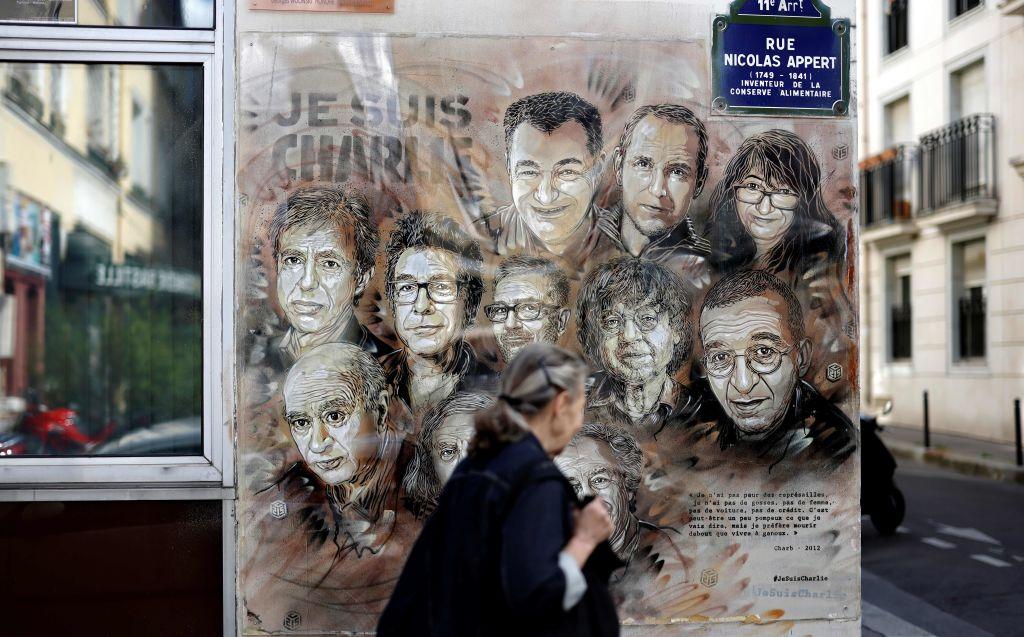PARIS—A survivor of the 2015 attack on satirical magazine Charlie Hebdo told a French court on Wednesday how the terrorist said “Allahu akbar” (“God is greatest”), then shot him with their Kalashnikov rifles.
Simon Fieschi was the first employee the two Islamic terrorists encountered when they entered the magazine’s Paris offices. He said that after being shot he lost consciousness, and the terrorists moved on to other targets.





